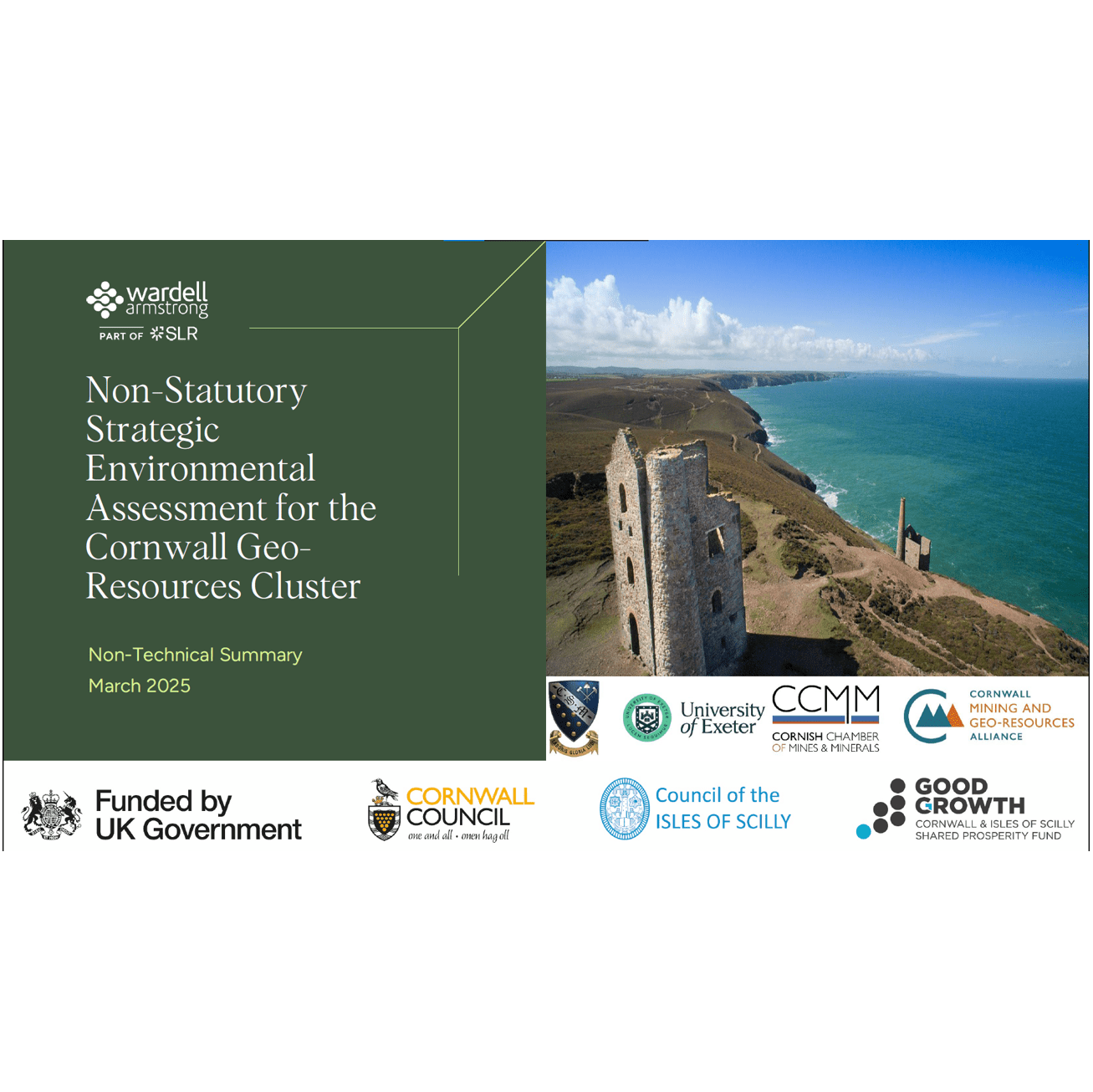
Non-statutory Strategic Environmental Assessment (Non-Technical Summary)
A Strategic Environmental Assessment (SEA) provides a strategic overview of potential environmental and social impacts and opportunities at a very large scale. It is a systematic process for identifying, assessing, proposing mitigation measures and monitoring environmental impacts of plans, programmes and strategies.
This ‘non-statutory Strategic Environmental Assessment‘ (SEA) is a special kind of assessment that considers the environmental (and social) impacts of multiple projects all together. It is separate from the planning and permitting of individual sites but really useful in more strategic planning for land and water use, energy, nature recovery, education, transport and recreation across the region and in encouraging industry collaboration. The SEA follows on from a case study applying
the UN Resource Management System to Cornwall. This is a ‘first’ in UK minerals development, and also leading the way internationally. The SEA has been commissioned as part of the Geo-resources Sector Strengthening Project, funded by the Shared Prosperity Fund via the Good Growth team at Cornwall Council, and led by the University of Exeter in partnership with the local companies developing and working in geological resources. This includes all the companies exploring for metals in Cornwall.
An SEA considers all the things that might, at least in theory, ‘go wrong’, i.e. produce negative environmental or social impacts and discusses how they can be mitigated. It also considers what can ‘go right’ and give positive impacts from the new developments.
The results of the SEA can be used to make a strategic environmental plan, which would be the next important step to realise value from the SEA and engage with stakeholders, including communities, local interest groups and companies, as well as local government. The aim is to make sure that Cornwall’s natural resources are developed in ways that benefit all of us living here.
Frances Wall. Professor of Applied Mineralogy. Camborne School of Mines. University of Exeter. March 2025
The full report is available to CMGA members. Not already a member? Sign-up here.
Resources
Explore a collection of materials designed to support and enhance your training experience.
